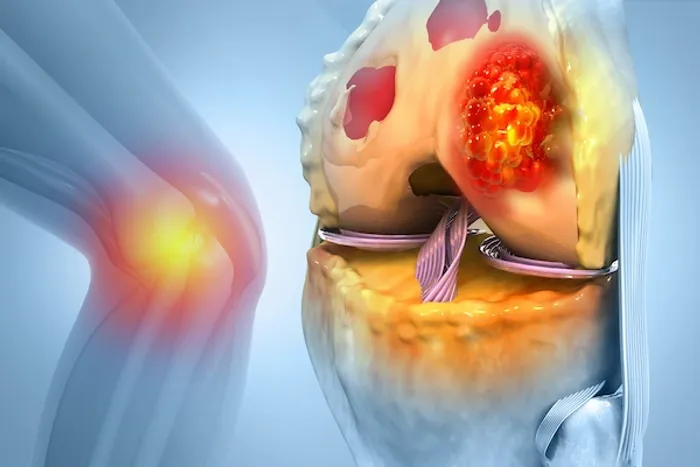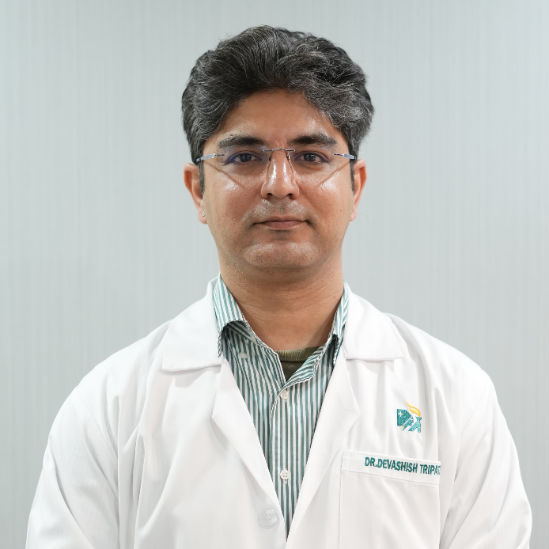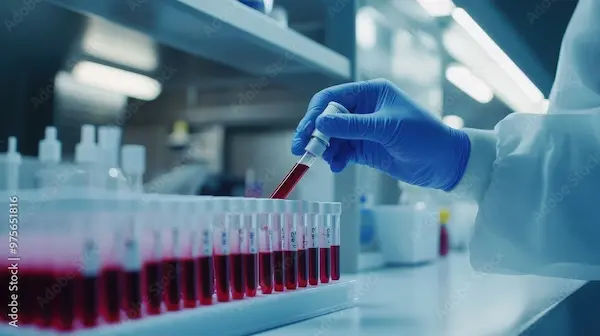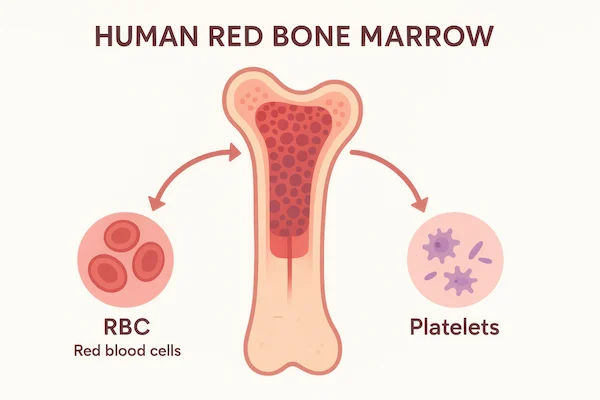Bone Cancer Detection Through Blood Tests
Know about bone cancer detection, common symptoms, types of blood tests for bone cancer, when to get it done and how to manage the bone cancer.

Written by Dr. Siri Nallapu
Reviewed by Dr. Dhankecha Mayank Dineshbhai MBBS
Last updated on 13th Jan, 2026

Introduction
Bone cancer is a serious condition that affects the bones, causing pain, weakness, and other complications. Early detection is crucial for effective treatment, and blood tests can play a role in identifying potential signs of bone cancer. If you or a loved one is concerned about bone cancer, this article will help you understand how blood tests contribute to detection, what symptoms to watch for, and when to seek medical advice.
Understanding Bone Cancer
Bone cancer occurs when abnormal cells grow uncontrollably in the bones. It can start in the bone (primary bone cancer) or spread from other parts of the body (metastatic bone cancer). While bone cancer is rare, early diagnosis improves treatment outcomes.
Common Symptoms of Bone Cancer
The common symptoms of bone cancer include:
Persistent bone pain that worsens at night
Swelling or a lump near the affected bone
Weakness in bones leading to fractures
Fatigue and unexplained weight loss
If you experience these symptoms, consult a doctor for further evaluation.
Consult a Top oncologist for the best advice
How Blood Tests Help in Bone Cancer Detection
Blood tests alone cannot diagnose bone cancer, but they provide important clues that help doctors decide if further tests (like imaging or biopsies) are needed. Some key blood markers include:
1. Alkaline Phosphatase (ALP)
High levels may indicate bone damage or abnormal bone growth.
Often elevated in bone cancer, but can also be due to other conditions like liver disease.
2. Lactate Dehydrogenase (LDH)
Increased levels may suggest rapid cell breakdown, which happens in cancer.
Not specific to bone cancer, but it helps assess disease progression.
3. Calcium Levels
Bone cancer can release excess calcium into the blood (hypercalcemia).
Symptoms include excessive thirst, frequent urination, and confusion.
4. Tumour Markers (in Some Cases)
Certain bone cancers (like osteosarcoma) may produce specific proteins detectable in blood.
While these tests provide useful information, doctors usually combine them with X-rays, MRIs, CT scans, or biopsies for a confirmed diagnosis.
Get Your Health Assessed
When Should You Get Tested?
If you have persistent bone pain, unexplained fractures, or other concerning symptoms, your doctor may recommend blood tests along with imaging studies. People with a family history of cancer or previous radiation therapy should also stay vigilant.
Managing Bone Cancer: Tips for Better Health
If diagnosed with bone cancer, early treatment (surgery, chemotherapy, or radiation) can improve outcomes. Additionally, these lifestyle changes may help:
1. Maintain a Nutritious Diet
Eat calcium-rich foods (milk, leafy greens) and vitamin D (eggs, fish) for bone strength.
Include protein (lean meats, beans) to support healing.
2. Gentle Exercise (As Recommended by Doctor)
Light activities like walking or swimming can help maintain mobility.
Avoid high-impact exercises that may increase fracture risk.
3. Pain Management
Follow prescribed pain relief medications.
Physical therapy may help improve comfort and movement.
4. Emotional Support
Seek counselling or join support groups to cope with stress.
Stay connected with loved ones for encouragement.
When to See a Doctor
If you notice persistent bone pain, swelling, or other unusual symptoms, don’t ignore them. Early detection can make a significant difference in treatment success.
Final Thoughts
While blood tests alone can’t confirm bone cancer, they are a helpful tool in the diagnostic process. If you experience ongoing bone pain or other worrying signs, consult a doctor for proper evaluation. With timely detection and treatment, many patients manage bone cancer effectively and maintain a good quality of life.
Consult a Top oncologist for the best advice

Dr.sanchayan Mandal
Medical Oncologist
17 Years • MBBS, DrNB( MEDICAL ONCOLOGY), DNB (RADIOTHERAPY),ECMO. PDCR. ASCO
Kolkata
Dr. Sanchayan Mandal Oncology Clinic, Kolkata

Dr Gowshikk Rajkumar
Oncologist
10 Years • MBBS, DMRT, DNB in Radiation oncology
Bengaluru
Apollo Clinic, JP nagar, Bengaluru

Dr. Sanchayan Mandal
Medical Oncologist
17 Years • MBBS, DrNB( MEDICAL ONCOLOGY), DNB (RADIOTHERAPY),ECMO. PDCR. ASCO
Kolkata
MCR SUPER SPECIALITY POLY CLINIC & PATHOLOGY, Kolkata

Ms. Hiba Siddiqui
Oncologist
13 Years • BA (Hons), MA, Professional Certification Psycho-oncology, PhD
Delhi
Apollo Hospitals Indraprastha, Delhi

Dr Devashish Tripathi
Radiation Specialist Oncologist
20 Years • MBBS, PLAB, MRCP (UK)- General Medicine, FRCR (Oncology), Certificate of Completion of Training (CCT)- Clinical Oncology
Delhi
Apollo Hospitals Indraprastha, Delhi


